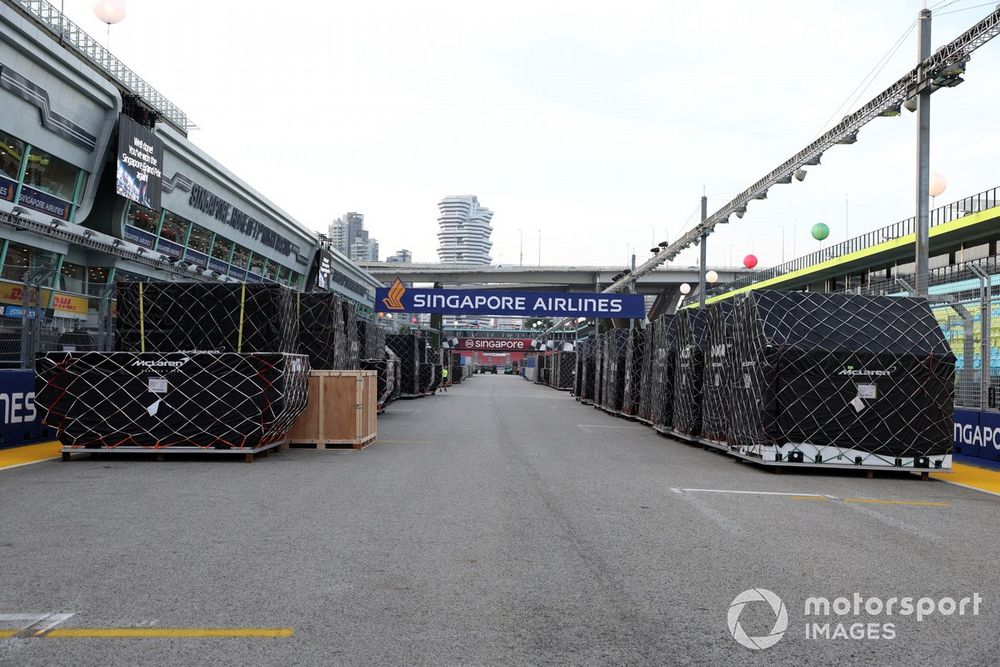
Formula 1 is confident of becoming net zero by 2030 having reduced carbon emissions by 26% across the last seven years.
A recent report from F1 stated that the championship’s carbon footprint stood at 168,720 tCO2e at the end of 2024, compared to 228,793 tCO2e following 2018.
This comes just over a year after
F1 announced it had reduced carbon footprint by 13% between 2018 and 2022
, as part of its Net Zero by 2030 campaign aiming to cut 50% of absolute carbon emissions compared to its 2018 baseline.
It marks significant progress for the championship which is set for a huge year in 2026, as there will be a regulation overhaul with changes set for car chassis and engine, plus sustainable fuel making its first appearance in F1.
“We are strongly committed to achieving Net Zero by 2030,” said F1 CEO Stefano Domenicali. “It is a concrete goal, already visible in the significant reduction of our sport’s carbon footprint.
“While continuing to grow globally, we have shown that sustainable development is possible and that the strategies we have adopted are yielding tangible results.

“Formula 1 has always been synonymous with innovation and the desire to improve. Once again, this mentality has allowed us to make important progress, not only for those who work in this world, but also for society as a whole.
“We will continue to pursue our projects and next year we will introduce new actions, such as the use of advanced sustainable fuels in all Formula 1 cars, a step that also opens up significant opportunities for road cars and other means of transport.
“We are proud of what we have achieved so far and remain determined to continue on this path.”
The carbon reduction comes despite F1 being at its most popular, with race attendance growing by 2.5 million between 2018 and 2024. During that time, the championship has also risen to a record 24 grands prix a year meaning if no operational changes had been made, F1’s carbon footprint would have increased by 10%.
So to combat that, F1 factories have transferred to renewable energy sources allowing for a 59% reduction in carbon emissions, while travel emissions have decreased by 25% with more remote work now being undertaken.
There has also been a 12% reduction on event operation emissions with, again, extra reliance on renewable energy sources while the use of more efficient Boeing 777F freighter jets mean emissions from logistics have decreased by 9%. This has also been achieved through the expanded use of biofuel trucks for freight in Europe.

Ellen Jones, F1’s Head of Energy, Sustainability and Governance, said: “Today’s results are the product of years of hard work across the sport.
“All areas have been tasked with operating more sustainably, and it is through this sport-wide engagement and delivery that we are able to achieve such significant emission reductions.
“Looking ahead, we have a clear plan to meet our commitments and to further demonstrate how growth can be positive for both sustainability and sporting outcomes.
“Formula 1 is uniquely placed to show that performance and sustainability can support one another, and I look forward to seeing the impact of initiatives already announced – such as changes to our race calendar from 2026 – as well as those yet to come, to help us deliver on our goals and beyond.”









Leave a Reply